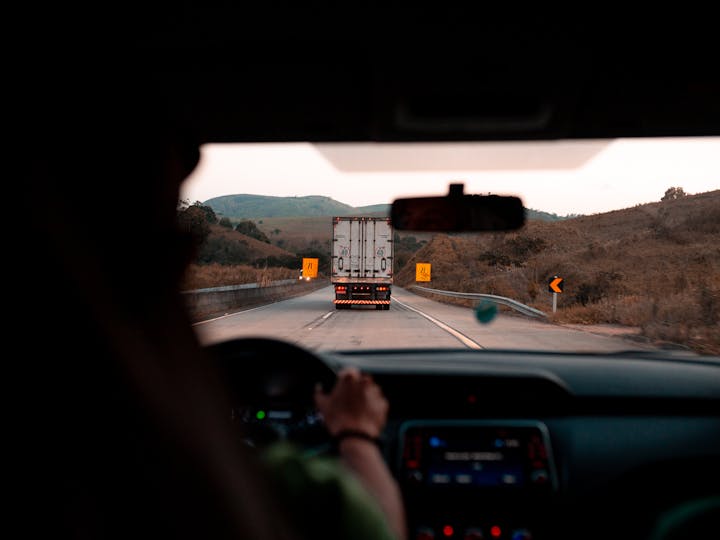When a huge 80,000-pound truck crashes into your car, the damage goes far beyond swapping insurance details. These accidents are complex and can overwhelm anyone.
Unlike regular car crashes where one driver is usually at fault, truck accidents often involve several people or companies who may share the blame.
This is where third-party liability comes in. It means someone besides the truck driver—like the trucking company or a repair service, may be legally responsible for your injuries. Knowing who else might be at fault can help you get the full compensation you deserve.
This article explains how third-party liability works in truck accidents, who might be held responsible, and why it matters for your claim and recovery.
What is Third-Party Liability?
Third-party liability means others beyond the truck driver may be partly responsible for the crash. These parties can include trucking companies, cargo loaders, or maintenance providers. Even if they weren’t at the scene, their actions may have contributed to what happened.
Unlike direct liability, which focuses on the driver’s mistakes, like speeding or distracted driving, third-party liability looks deeper. It asks if someone else failed in their duties and made the crash more likely.
This difference is important. Truck drivers often carry limited insurance. But the companies behind them usually have much larger policies. If a third party is responsible, you may be able to recover more money to cover both your current losses and long-term care.
Common Third Parties in Truck Accident Cases
Understanding who else may be responsible is key to getting full compensation. Besides the truck driver, several other parties may share fault:
Trucking Companies and Contractors
The trucking company that employs the driver is often the main third party held responsible. By law, employers are usually liable for what their drivers do while on the job.
That means the company can be blamed if it hired unqualified drivers, skipped proper training, or failed to keep its trucks in safe condition.
Other connected companies, like parent firms, subcontractors, or logistics partners, can also share blame. If they pushed drivers to meet unsafe deadlines, ignored safety rules, or hired drivers with bad records, they may be held liable too.
Cargo and Maintenance Providers
Poor cargo loading or bad maintenance work can cause serious truck accidents. Cargo companies may be at fault if loads are too heavy or not properly secured. These mistakes often break federal rules and lead to dangerous crashes.
Outside crews who load cargo or repair trucks can also be held responsible. If a repair shop does sloppy work and the truck fails on the road, like with brake failure, blown tires, or steering issues, they may be liable for the accident.
Manufacturers and Government Entities
Sometimes, truck accidents happen because of faulty parts like bad brakes or tires. In these cases, the manufacturer may be responsible.
Product liability laws let victims file claims if a defective part caused the crash, even if the driver did nothing wrong.
Poor road conditions can also lead to accidents. If missing signs, bad road design, or lack of maintenance played a role, a city or state agency might share fault. These claims are harder to file and follow special legal rules, but they can still help cover your losses.
How to Prove Third-Party Liability in Truck Accidents
Proving third-party fault takes strong evidence and quick action. Important records can disappear fast after a crash. Here’s what to look for:
- Maintenance records can show missed repairs or ignored issues that point to negligence.
- Black box data reveals speed, braking, and driving hours, which can expose safety violations or false claims.
- Federal safety reports may show a history of violations that strengthen your case.
- Employment records can uncover poor hiring or training practices that shift fault to the company.
- Drug test results may indicate unfit drivers or company oversight.
- Crash experts help explain how the accident happened based on physical evidence.
- Trucking experts clarify which safety rules were broken and how that caused the crash.
Together, this evidence builds a strong foundation for your claim and increases your chances of holding the right parties accountable.
How Third-Party Claims Can Affect Compensation
Third-party liability can increase the amount you get by involving more responsible parties and insurance policies. Instead of depending only on the truck driver’s limited coverage, you can make claims against several companies with bigger insurance.
Trucking companies usually have insurance from $1 million to $5 million or more. Cargo handlers, repair shops, and manufacturers often have their own coverage too. Together, these coverages offer more money to pay victims fairly.
You can file claims against different parties for different damages. This means you can get money from multiple sources at once.
Many states have rules that let you collect the full amount from any one party, even if others are partly at fault. This protects you if some responsible parties don’t have enough money to pay.
Challenges with Third-Party Truck Accident Claims
Investigations in third-party truck accident cases are often very complex. Finding all responsible parties means digging into company ties, maintenance records, cargo details, and safety rules. This takes time and resources most victims don’t have.
Big trucking companies hire skilled lawyers who know how to defend against claims. These lawyers try hard to reduce blame or shift it to others.
Delays in finding all responsible parties can hurt your claim. Some defendants may only appear months after the crash, so filing on time is critical. Missing deadlines can stop you from making claims.
Insurance issues also make these cases harder. Different companies may fight over who pays, causing delays and gaps in coverage. Managing multiple insurance layers adds to the challenge.
Why You Need Legal Help
Truck accident cases are complex and require expert knowledge to identify all responsible parties, gather evidence, and fight against powerful insurance companies. Having an experienced lawyer ensures you get the full compensation you deserve.
Expert Knowledge of Trucking Laws
Truck accident cases involve complex rules and standards that need specialized legal experience. General injury lawyers may not fully understand federal trucking regulations or industry practices.
Finding All Responsible Parties
Skilled lawyers quickly identify every liable party and gather important evidence before it’s lost. They work with experts to build a strong case that holds all responsible parties accountable.
Handling Multiple Defendants
Experienced attorneys manage claims against several parties and negotiate to maximize your compensation. They know how to coordinate between different insurance companies and legal teams to protect your rights.
If you’re unsure what to do next or want to learn about your legal options, having the right legal team can really help.
That’s where DiBella Law Injury and Accident Lawyers comes in. As a leading Boston truck accident attorney, they provide a free consultation to guide you through your rights and next steps.
Final Thoughts
Third-party liability means truck accident cases can involve many people, not just the driver. Knowing this helps you get more money for your injuries.
Many groups, like trucking companies, repair shops, and cargo handlers, can be at fault. Finding all responsible parties helps you get the most compensation.
You need a lawyer early to protect evidence and handle the case. Don’t think only the driver is to blame. Often, companies share the fault, so claim from everyone responsible.


